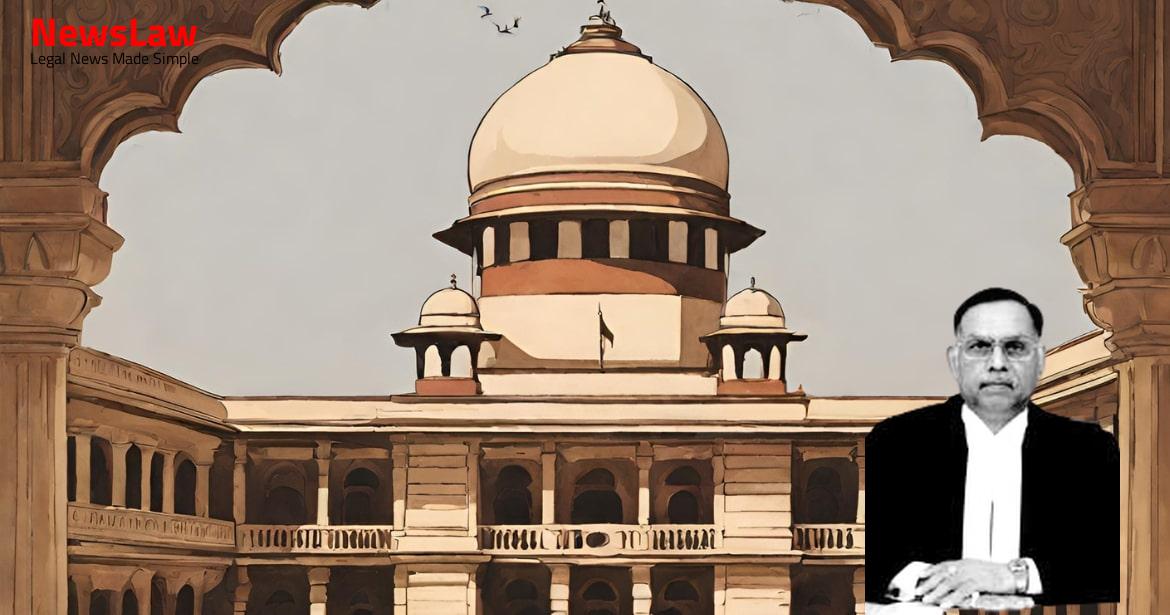The recent case delving into the interpretation of bonus marks policy for contractual employees working under NHM/NRHM schemes has shed light on the courts’ meticulous legal analysis. Discover the rationale behind the court’s decision and the implications it holds in our detailed blog post.
Facts
- The Single Judge allowed the writ petitions and directed the State of Rajasthan to grant bonus marks to the appellants who worked under NHM/NRHM schemes in different states.
- The Division Bench, relying on the lead matter judgment, dismissed the appeals against the Single Judge’s order.
- The State of Rajasthan had approached the Division Bench against the Single Judge’s order, seeking to confine the bonus marks benefit to those employed within Rajasthan only.
- The Division Bench allowed the State’s appeal, stating that the bonus marks benefit was intended for those working within Rajasthan and not in other states.
- The appellants are now before the Court, challenging the Division Bench’s decision.
Also Read: Presumption of Genuine Endorsements in Cheque Case
Arguments
- Contractual employees under NHM/NRHM schemes in Rajasthan do the same work as those in other states, like working as Nursing Assistants in ambulances.
- Rule 19 of the Rules allows candidates working anywhere in the country under NHM/NRHM schemes to qualify for bonus marks.
- The appellants argue that Rule 19 allows candidates from anywhere in the country to get bonus marks.
- State of Rajasthan’s counsel argues that bonus marks are only for employees who have worked under NHM/NRHM in Rajasthan.
- Appellants claim that discriminating between employees in Rajasthan and those outside is arbitrary and violates Article 14 of the Constitution.
- Rajasthan’s diverse topographies make it unreasonable to restrict bonus marks to employees only in the state.
- Division Bench rightly interpreted and allowed the State’s appeal
- Rule 19 gives additional weightage for services rendered by contractual employees in Rajasthan
- Object of Rule 19 is to recognize services of contractual employees with State Government or under state schemes
Also Read: Medical Negligence and Compensation: A Landmark Decision
Analysis
- The Division Bench in the case of Jagdish Prasad (Supra) found that the Government of Rajasthan conducts mandatory training programs for contractual employees, especially focusing on rural and tribal areas.
- Participation in these training programs is crucial, with non-attendance leading to non-renewal of service contracts.
- Bonus marks are given to Nurse Compounder Junior Grade candidates with similar work experience under the State government and various schemes.
- The policy of giving bonus marks is specific to experience gained in Rajasthan, highlighting the importance of familiarity with the state’s working conditions.
- Courts are cautious in interfering with government policies unless they are discriminatory, arbitrary, or contrary to legal directives.
- The policy decision regarding bonus marks for experience in Rajasthan is deemed fair and logical by linking it to the objective of the recruitment process.
- Competent authorities for issuing experience certificates for contractual employees are predominantly heads of institutions within Rajasthan, suggesting a regional context for the policy.
- The policy gives additional weightage to candidates with Rajasthan experience, creating a distinct class based on practical knowledge of the state’s workings.
- The benefit of bonus marks is minor and does not impact eligibility but provides slight advantage based on familiarity with Rajasthan’s working environment.
- Government of Rajasthan conducted training programs for employees working on contractual basis and under different schemes.
- Training programs focused on peculiar working patterns in rural areas of Rajasthan including tribal and arid zones.
- Policy of Rajasthan to give bonus marks only to employees working under specific organizations and schemes deemed non-arbitrary.
- Court upheld the policy of giving weightage for services rendered by employees employed temporarily or on an ad hoc basis.
- Experienced candidates in other States cannot be compared with candidates in Rajasthan.
- Every state has its own unique problems and issues.
- Candidates trained to meet state-specific circumstances are in a different category.
Also Read: Remand of Writ Petition for Restoration and Decision on Merits
Decision
- The appeals have been dismissed
- No order has been given regarding costs
- Pending application(s) shall stand disposed of accordingly
- The impugned judgment has been upheld
Case Title: SATYA DEV BHAGAUR Vs. THE STATE OF RAJASTHAN (2022 INSC 197)
Case Number: C.A. No.-001422-001422 / 2022



